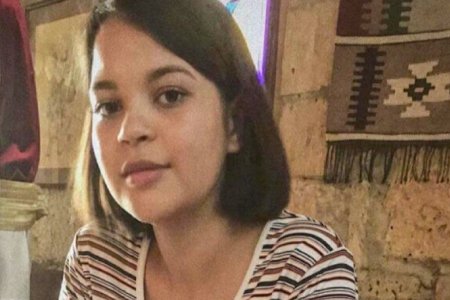
Oleksandr Marchenko has been subjected to additional persecution in Russian captivity since 2022, when he openly called Russia’s full-scale invasion of Ukraine a war. He has now been sent to a prison, the harshest of all Russian penal institutions, for three years with the prison authorities claiming multiple ‘infringements of regulations’ and asserting that Marchenko, a recognized Ukrainian political prisoner, had “reacted negatively to measures of an educational nature”.
Lawyers from the First Department [Pyervy Otdel] human rights initiative first reported this “new torment against Ukrainian political prisoner Oleksandr Marchenko” at the end of February. The conditions that Marchenko would face, they said, were worse than those which Russian political prisoner Alexei Navalny was held in before his death (almost certainly from unnatural causes).
The grounds given in the ruling were quite surreal, the lawyers reported, with the move demanded by two guards from Prison Colony No. 8 in Ulan-Ude – S.S. Klimentyev and V.A. Bezochestvo. After claiming multiple infringements and Marchenko’s ‘negative reaction to educational measures’, they asserted that “in the prison colony he had carried out public acts “aimed at discrediting the Russian Federation army” and had been declared “a persistent offender” by the head of the prison colony. In the words of these guards, Marchenko lacked an attitude directed at “law-abiding behaviour” and there was, purportedly, “a high level of criminal contamination”. Other allegations, as well as the results of a ‘psychological assessment’, seem equally implausible.
‘First Department’ points out that, on the contrary, it is Marchenko who has been tormented and ill-treated by the prison guards over recent years. They have forced him to commit the infringements which are then used against him, threatening that “it will be worse” if he refuses. They have demanded that he shout “glory to Russia” and answer, as demanded by the occupying state, when they ‘ask him’ who Crimea belongs to. They have also tried to force him to renounce Ukrainian citizenship and take Russian. He spent 119 days in the especially appalling conditions of Russian punishment cells, as well as a further 15 weeks in cell-like conditions (also punishment, although not as severe). He will now face even worse conditions in a Russian ‘prison’.
Oleksandr Marchenko is not the only Ukrainian political prisoner whom Russia is subjecting to particularly brutal treatment, with the vast majority of politically motivated sentences against Crimean Tatars and other Ukrainians including several years in a prison. It is, however, noticeable that Marchenko’s treatment became significantly worse after Russia began its full-scale invasion of Ukraine.
In December 2022, new charges were laid against the Ukrainian of supposedly ‘discrediting the Russian army’ by calling Russia’s aggression against Ukraine a war (whereas Russia is continuing to hide behind its euphemistic ‘special military operation’). This was under Article 20.3 of Russia’s administrative code, one of four administrative and criminal charges rushed into legislation immediately after the full-scale invasion and aimed at silencing protest. It was claimed that, while in a cell, together with two other prisoners, Marchenko had commented on the ‘news’ they were hearing, and called the war a war. It was, supposedly, his cellmates who had sent a denunciation of Marchenko to the prison administration. The charge was grotesque but ended up before a local ‘court’ which, predictably, found Marchenko ‘guilty’ and imposed a 30 thousand rouble fine. Such fines have serious consequences, making it impossible for his wife Kateryna to send money (for food items, etc) as the money would simply be deducted from the fine.
Oleksandr Marchenko (b. 1971) and his wife had been living for several years in Kyiv when, in 2018, he took a disastrous step that resulted in him being seized and tortured at the notorious Izolyatsia secret prison in Donetsk and handed over to Russia’s FSB. After graduating from the Dnipro Mining Institute, Marchenko had for some time worked for a company supplying mining equipment and had managed to satisfy a lifelong dream and buy a sports car, albeit a relatively old (1991 model) Lamborghini Diablo. The car had probably been affordable because it needed major restoration and repair work which normal mechanics would not take on. From 2009, therefore, the car had been undergoing restoration work at NonStop, a company based in Donetsk.
The car was plundered by the ‘DPR’ militants who seized Donetsk in 2014. In 2017, the car, repainted black but still recognizable, appeared on a video clip about a race in occupied Donetsk. From his own sources, Marchenko learned that the car had been appropriated by Alexander Timofeyev, known as ‘Tashkent’, who was the so-called ‘minister of taxes and revenue’ under militant leader Alexander Zakharchenko. When the latter was killed in a bomb blast in August 2018, ‘Tashkent’ lost the ensuing battle for power and fled to Russia.
For reasons that remain unclear, Marchenko’s acquaintance, Yury Husakov got in touch with him at that point, and said that if Marchenko came to Donetsk with all the papers for the car, there was a chance of getting it back. Husakov was then supposed to drive the car, once it had received ‘DPR permission’, across the checkpoint into government-controlled Ukraine.
Marchenko and his wife had clearly not followed developments on occupied territory and failed to understand the danger that the Ukrainian would face. He not only decided to try to retrieve the car, but did so in the most risky way, travelling via Minsk through Moscow and across the Russian / militant controlled part of the border into occupied Donbas. It was seemingly after Marchenko filed his application for the car to be returned to him, that he was seized at a border crossing on 17 December 2018.
He was held during those two months at the Izolyatsia secret prison in Donetsk where horrific forms of torture are used to force hostages to sign or say whatever the militants demand. Once he finally had access to a proper lawyer, Yevgeny Smirnov, Marchenko was able to say that his captors had stripped him and attached an electric current, among other things, to his genitals. He was also hung by handcuffs from the ceiling for whole days. According to Smirnov, the ‘DPR’ militants would take breaks in the torture during which they asked the same questions of Marchenko as those he was later asked by the FSB in Russia.
The Russian ‘case’ against Marchenko makes absolutely no mention of the car nor of his seizure and imprisonment in ‘DPR’. On 18 February 2019, Marchenko was taken by force, and with a bag over his head, to the Russian Federation, accompanied first by the ‘DPR security service’, then by the Russian FSB.
In Krasnodar, he was initially told that he had ‘witness’ status, with a Russian court imposing an administrative arrest sentence for supposedly disobeying enforcement officers and a day’s illegal work in Russia.
It was only on 19 February that he was able to send a text message to his family, telling them that he was in Krasnodar. Marchenko’s ‘administrative arrest’ was extended several times, and a court eventually ordered his deportation – a ruling applauded by both Marchenko’s lawyer and Ukraine’s Consul. Instead, and despite the court order, was held for a month and a half at a deportation centre while the FSB fabricated ‘a case’ against him.
At the beginning of May 2019, Marchenko was finally charged with ‘espionage’ under Article 276 of Russia’s criminal code. He was accused of having gathered information containing a state secret for Ukraine and Ukraine’s Security Service [SBU]. The FSB (‘investigator on particularly important affairs of the Krasnodar regional FSB, G. Gerasimov) asserted that Marchenko had planned to smuggle ‘military technology’ and had, on 12 May 2018 entered into a criminal conspiracy with a Russia identified as V. I. Fedorenko. The two had supposedly held a meeting in Moscow where they discussed the cost of two had set up a plan to purchase and smuggle across the border into Ukraine two sets of specialized linear-beam vacuum tubes, designed for use in S-300 surface-to-air missile systems. It was further claimed that Marchenko had, on 21 May 2018, “organized the transfer of 130 thousand USD from an unidentified bank in Kyiv to an unidentified bank in Moscow”.
There was no evidence to back these extraordinary charges, including the movements from a mystery bank to a mystery bank of an extremely large amount of money. The charges appear to have been based solely on ‘testimony’ from ‘V. I. Fedorenko’. The original Krasnodar Regional Court had turned down the defence’s application to have Fedorenko questioned in court, as well as the authors of FSB correspondence which was also cited in the indictment. In declaring Marchenko a political prisoner on 27 December 2019, the renowned Memorial Human Rights Centre (forcibly disbanded by the current Russian regime, and now the Memorial Support for Political Prisoners Project) pointed out that it is a standard ploy to extract such testimony under threat that the person (in this case Fedorenko) will himself be imprisoned on such charges.
The lack of any evidence was no impediment to the Krasnodar Regional Court which on 26 November 2020 sentenced Marchenko to 10 years’ imprisonment in a maximum security (“harsh regime”) prison colony. On 1 April 2020, this sentence was upheld by the Russian Third Court of Appeal, and then, in November 2021 by a cassation chamber of Russia’s Supreme Court.



